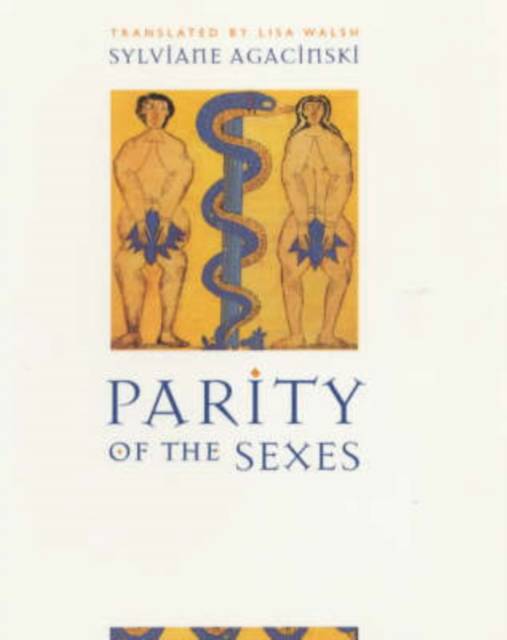
- Retrait gratuit dans votre magasin Club
- 7.000.000 titres dans notre catalogue
- Payer en toute sécurité
- Toujours un magasin près de chez vous
- Retrait gratuit dans votre magasin Club
- 7.000.0000 titres dans notre catalogue
- Payer en toute sécurité
- Toujours un magasin près de chez vous
Description
Sylviane Agacinski has never shied away from controversy. Vilified by some--including many feminists--and celebrated by others as a pioneer of gender equality, she has galvanized the French political scene. Her articulation of the theory of "parity" helped inspire a law that went into effect in May 2000 requiring the country's political parties to fill 50 percent of the candidacies in every race with women.
Sylviane Agacinski, according to The New Yorker, "is sometimes credited with making parité respectable." Agacinski begins with the notion that sexual difference should be affirmed rather than denied. Sex, Agacinski points out, is not a social, cultural, or ethnic characteristic--it is a universal human trait. In her argument for the necessary recognition of sexual difference, she enters into today's most controversial social territory. Agacinski's model of parity does not strive for the nebulous ideal of "equality" between the sexes; instead, it demands a concrete formula for political contests: an equal number of female and male candidates in every election. It is a theory that has sparked impassioned debate across France: Are female politicians necessarily different from male politicians? Is parity democratic? Is it truly feminist? Agacinski's sophisticated polemic will stimulate debate on American shores as it has in France. Parity of the Sexes sheds light on one of the crucial spheres of public life in which earlier French feminists left their work unfinished--the realm of political power.Spécifications
Parties prenantes
- Auteur(s) :
- Traducteur(s):
- Editeur:
Contenu
- Nombre de pages :
- 208
- Langue:
- Anglais
- Collection :
Caractéristiques
- EAN:
- 9780231115674
- Date de parution :
- 10-07-01
- Format:
- Livre broché
- Format numérique:
- Trade paperback (VS)
- Dimensions :
- 141 mm x 181 mm
- Poids :
- 222 g

Les avis
Nous publions uniquement les avis qui respectent les conditions requises. Consultez nos conditions pour les avis.






